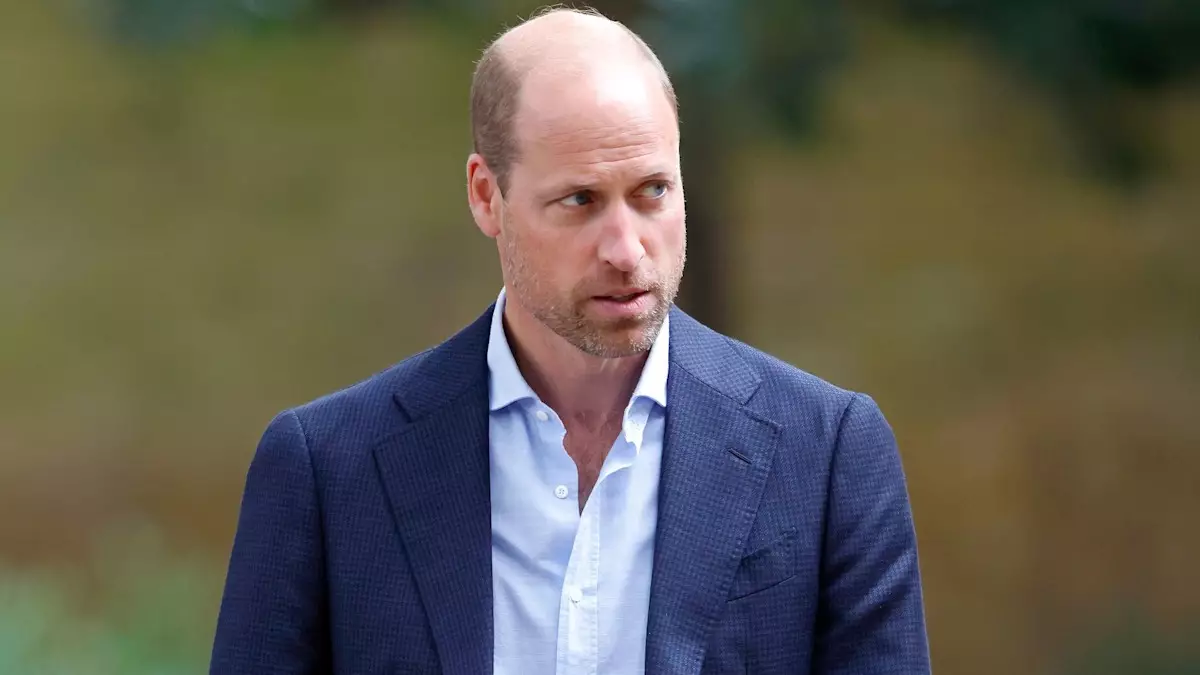The announcement that Prince William, the Prince of Wales, will represent the British monarchy at the funeral of Pope Francis marks a significant moment in both his personal journey and the evolving role of the monarchy in contemporary society. As a representative of King Charles, William’s presence at this historic event goes beyond mere protocol; it signifies a thoughtful engagement with global faith leadership. Following the footsteps of his father, who attended the funeral of Pope John Paul II in 2005, William’s choice to step into this role underscores his growing stature as a global statesman, as well as the monarchy’s commitment to fostering relationships that span cultural and religious boundaries.
Traditionally, the British royal family has kept a respectful distance from the Vatican, particularly during the funerals of popes, with Queen Elizabeth II never attending a pontiff’s funeral. However, as time progresses and the global landscape shifts, this evolution of royal engagement displays an understanding of the modern world’s needs—growing interconnectivity and a need for compassion driven by shared human values. William’s attendance at the service signifies a break from the past and an embrace of a future where dialogue and unity are paramount.
The Impact of Pope Francis: A Global Reflection
Pope Francis, who passed away at the age of 88 following a stroke, is remembered not only for his spiritual leadership but also for his deep commitment to humanitarian causes. His influence transcended religious boundaries, making him a beloved figure to millions across different faiths. The heartfelt expressions from King Charles following the Pope’s death illustrate the depth of respect felt by leaders around the world. In his statement, Charles encapsulated Pope Francis’s legacy—not only as a faithful servant of the Church but also as a champion of social justice and environmental stewardship.
Through his actions, Pope Francis encouraged individuals, particularly those in positions of power, to embrace responsibility for the world—not just in a spiritual sense but as stewards of societal welfare. His fearlessness in addressing issues such as climate change demonstrates a profound understanding of faith as a catalyst for positive action. This pivotal commitment resonates with a significant portion of the global population, which craves authentic leadership that aligns ethical responsibility with spiritual cohesion.
The Modern Monarch’s Role in Global Dialogue
As world leaders gather to pay their respects to Pope Francis, including figures like US President Donald Trump and French President Emmanuel Macron, the event transforms into a platform for international dialogue. The attendance of royals, such as King Felipe and Queen Letizia of Spain, further emphasizes the unifying force of such ceremonies. From a public relations perspective, William’s participation illustrates how the British monarchy seeks to remain relevant amid shifting geopolitical dynamics.
In many ways, modern monarchs are no longer mere figureheads; they are stakeholders in global conversations. The funeral of a significant figure like Pope Francis serves as a reminder of the importance of unity and the possibility for collaboration across cultural divides. By attending such events, William and his contemporaries can actively contribute to a larger narrative—one that champions mutual respect, understanding, and compassion as cornerstones for world leadership.
Personal Connections and Historical Significance
In his statement, King Charles shared the personal affection he and Queen Camilla felt toward the Pope, particularly after their recent meeting. This personal connection is pivotal, as it humanizes leaders in the public eye and fosters a sense of shared humanity. Royal family interactions with influential figures are moments that offer a glimpse into the personal relationships that underpin the often ceremonial roles they fulfill.
The notion of legacy is significant in the context of such events. Just as Charles represented his mother, Queen Elizabeth II, at significant moments, so too is William stepping into a lineage of diplomacy that connects history with the present. As he assumes more public responsibilities, William is positioned to define his own legacy—a legacy shaped by a desire for compassion, unity, and conscious leadership in a world rife with division.
In sum, the monarchy’s engagement in significant moments such as the funeral of Pope Francis is about more than tradition; it reflects a nuanced understanding of the world, the recognition of interwoven destinies, and the responsibility shared by leaders to champion a future guided by empathy and cooperation.

